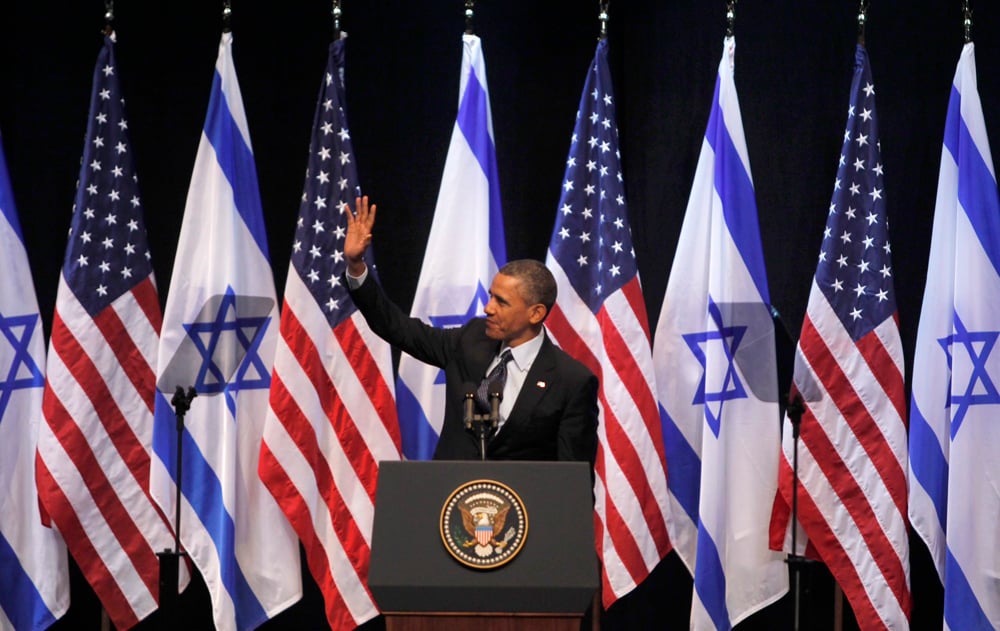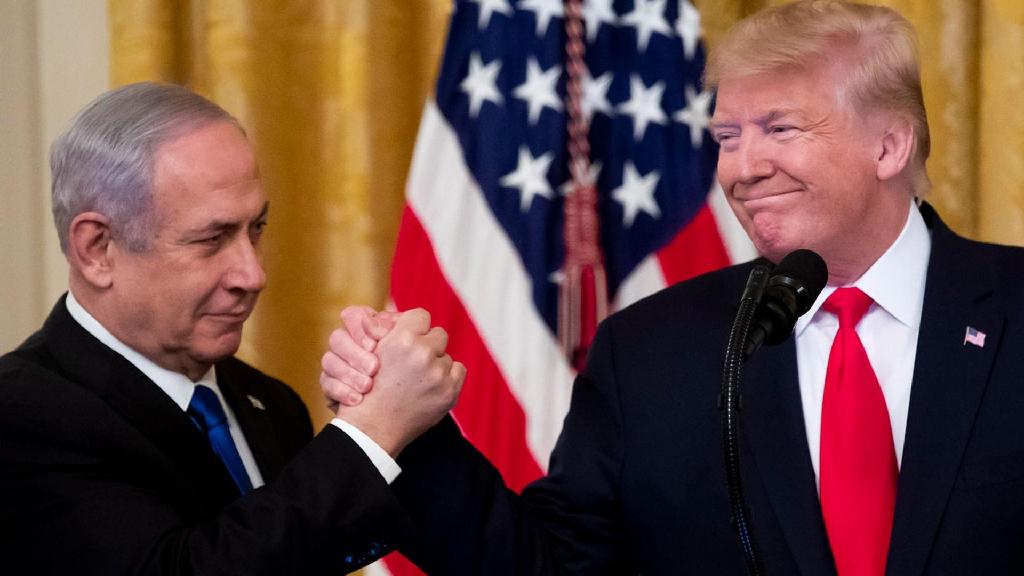Getting your Trinity Audio player ready...
Listening to Seth Rogen's comments on Israel during his recent appearance on Marc Maron's podcast, the first impression is that he has reverted to his stoner demeanor.
Rogen was one of Israel's greatest supporters in Hollywood. In 2014 he signed a letter supporting the state during the Gaza war of that year and has voiced his support for the country's right to defend itself.
5 View gallery


Marchers carry Israeli and American flags at a 'Celebrate Israel' event in New York
(Photo: Reuters)
But that was six years ago, and now Rogen is saying that the whole concept of Israel does not make sense, and that as a child he was not given the full truth about it.
Although Rogen later apologized for his comments, those who follow the younger generation of American Jews are not surprised.
The 38-year-old is a bit too old to represent this current generation, as is 39-year-old actress Natalie Portman, who in 2018 called off her appearance at the Genesis Prize ceremony to not be seen as supporting Prime Minister Benjamin Netanyahu.
The current generation is far blunter.
5 View gallery


Jewish actor Seth Rogen sporting a Star of David sweater in a 2015 movie
(Photo: Screenshot)
It is hard to forget that it was only during the 1967 Six-Day War that America's Jews really began to fall in love with the small Middle Eastern state.
But the moment it happened, it became unconditional.
Until the beginning of the 21st century, support for Israel was a mainstream idea among not only American Jewry, but across political lines.
The real change came during the last decade, mainly with the current generation who started to see the world differently.
Most young American Jews grew up on the ideals of liberalism and reformed Judaism, object to any kind of discrimination and stand firmly for social justice.
These young men and women look at today's Israel – the Nation-State Law, the disagreement over egalitarian prayer at the Western Wall, opposition to a ban on gay conversion therapy, politicians calling for satirical shows to be taken off the air, girls being sent home from school because their trousers were too short – and they find it hard to see the values they were told the Jewish state stands for.
Another issue influencing young liberal Jews is the Israel-Palestinian conflict.
According to a poll conducted by the Pew Research Center several years ago, only a quarter of Jews between the ages of 18-29 in the U.S. said they believe the Netanyahu administration "is working to bring a peace settlement with the Palestinians."
Added to this is the growing objective distance from the Holocaust and the difficulty of keeping its significance felt among young Jews.
This ticking time bomb could have been kept defused had Prime Minister Benjamin Netanyahu not decided to turn Israel into an off-shoot of the Republican Party, despite the fact that over 70% of American Jews regularly vote for the Democratic Party.
5 View gallery


U.S. President Barak Obama speaking in Jerusalem during his 2013 visit to Israel
(Photo: Reuters)
The start of this political crisis started with Netanyahu's insulting attitude towards Barak Obama, one of the most popular presidents in U.S. history, including a disrespectful and critical speech on his home turf in Congress.
An entire generation of young liberals who grew up with Obama as president started to feel animosity towards Netanyahu, who they saw as the face of Israel, further fueled by his close ties with Donald Trump, the man who embodies everything young Jews hate.
5 View gallery


U.S. President Donald Trump and Prime Minister Benjamin Netanyahu during peace plan reveal
(Photo: EPA)
Israel today thinks it can do without American Jewry and this might even be true for now.
But in 12 years, when a possibly more hardline Democratic president rises to power, stops U.S. aid to Israel and American Jews shrug their shoulders in indifference, the sacrifice of Israel's consensus in America for the benefit of Netanyahu's political survival will be seen as an historic tragedy.


